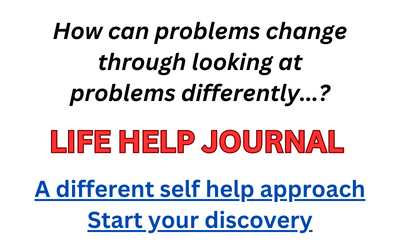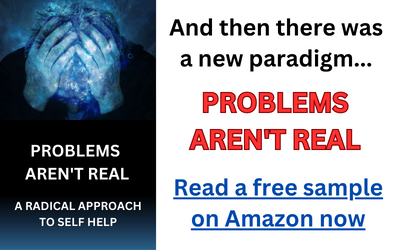I once spoke to someone about the work emergency dispatchers do and it occurred to me how difficult of a job that could be. These dispatchers, essentially, spend their entire day fielding calls from people in traumatic circumstances.
The next line after dispatchers of course are first responders, who deal with trauma in person. It’s easy to imagine the types of difficult circumstances first responders come up against. The build up of stress in these sorts of jobs, dispatchers and responders both, is inevitable. Is there anything to be done about it?
I gave some thought to this question and came up with some strategies.
Get a handle on your thinking.
Do you know what causes stress? Thinking does. This notion will be absolutely unbelievable to many people because so many of us are certain that life circumstances cause our negative emotions, whether these emotions are stress, anger, despair, or whatever else. But we’re wrong about this.
Life circumstances have no meaning, none whatsoever, until we consider these circumstances and then, in effect, label them. There is nothing that is inherently good or bad; the good and bad is unique to us because it comes from us. It does not come from “out there”. Can you appreciate this? Do you agree with it?
Wedo not feel stress, or any other negative emotion, until a negative thought comes into our awareness that we accept as true or in some other way latch on to. Emotions always follow thinking. In fact, emotions are physical body responses to thought.
If you don’t believe this now then prove it to yourself, or disprove it, by starting to observe your thinking. Stop moving through life with your mental stream on autoplay. Listen to your mental stream, listen to what it’s saying, and observe how you emotionally respond to it.
Once you come to understand, unequivocally, that your thinking and your thinking alone is the cause of your emotional states then you can take the next step, which is to disengage from negative thinking.
The first thing to understand is that you are not a prisoner to your thinking. You are in charge, not your thoughts. Negative thinking is going to come up. Everyone — every one — has negative thinking come up at times.
People who are impacted by their negative thinking, who suffer because of it, engage this thinking in some way: they accept it as truth, they try to push the thinking away, they dwell on it, they put their personal energy into this thinking some how or some way.
People who are unaffected by their negative thinking step back from negative thinking and allow it to pass in, and then pass out again. They treat their negative thinking like clouds in the sky: they watch it move past. No grabbing, no engagement.
They either do this OR they substitute positive thinking for their negative thinking. But what they do not do is engage negative thinking; they do not fall into it, hold onto it, dwell onit, etc.
You get the idea.
(Find a resource for observing thinking Here. Find resources for changing thinking Here and Here.)
Meridian energy therapy.
Meridian energy therapy is, in my estimation, a remarkable form of life help. If you’re unfamiliar with meridian energy therapy it is similar to acupuncture but instead of using needles to stimulate meridian points — meridian points are believed to correspond to bodily energy flow — finger touch is used.
For those who may be inclined to be dismissive of this process please, for the sake of your own well-being, keep an open mind. Meridian energy therapy really does demonstrate results, and it does this in two important ways: it improves mental / emotional outlook and it enhances the physical well-being of the body. How many methods can make this claim?
Beyond this meridian energy therapy is said to have healing effects on post-traumatic stress disorder or PTSD, which impacts first responders disproportionately.
(Find two exceptional meridian energy resources Here and Here.)
Below is a video that provides instruction on how to use EFT and SET, two meridian energy therapy methods. (Note: I prefer SET over EFT because I find it more convenient, and just as effective.)
I recommend using meridian energy therapy for one hour each day. The results are very much worth the effort.
Combine meridian energy therapy and managing thinking, and now you’re using two powerful and effective methods in tandem. You will get positive, helpful results from this combined practice.

